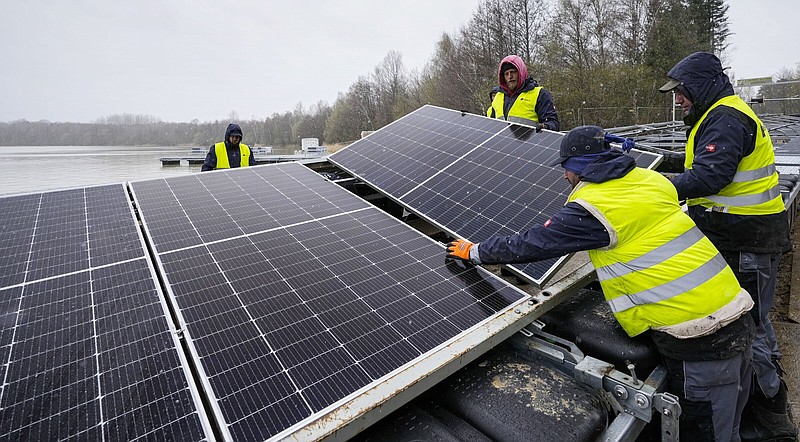Just when you started thinking about the amount of land it would take to light up a city using solar power (you were thinking that, right?) here comes “floating solar.” And not only is this idea a good one across the board, it’s kinda cool, too. When was the last time a conversation on solar panels was cool?
The paper reports that “floating solar energy systems” have the potential to provide more energy than land-based systems. Not only do they free up land for other uses — like hunting, agriculture, or condominium complexes — they also conserve water by preventing evaporation. The solar panels essentially act as lids on the lake/reservoir/bayou that they’re on.
It’s hard for Arkansans to think of our state as being drought-prone. After all, this has been a wet spring. However, management of our aquifers is a constant issue, with recharge not always keeping up with the discharge required to support our agriculture-based economy. As they say in next-door Texas, “They’ll fight ya over oil, but they’ll kill ya over water.”
An obscure fact about solar panels is that they tend to lose efficiency when they get too hot. But when they’re laying out on the lake, sipping sunshine and enjoying the breeze, they are much more efficient.
According to the journal Nature Sustainability, more than 6,000 cities in 124 countries could generate enough energy to electrify their whole cities entirely with floating solar. In the process, they would save enough water to fill about 40 million Olympic-sized swimming pools. Like the movie says, this is wicked smaht.
While this concept may seem like a good future possibility, it’s already being used in the present. North America lags behind other parts of the world, but the Canoe Brook Water Treatment Plant in Millburn, N.J., already produces 8.9 megawatts of electricity.
As always, high upfront costs are an issue. On average, floating solar panels cost about 15% more than land-based ones. But there are many incentive programs to offset these costs.
Fortunately, we won’t have to worry about solar panels getting in the way of whale migration or deep sea-fishing — and Arkansans won’t have to worry about them while they shoot the rapids of the Mulberry River. They are not built to operate on “moving water, on the open ocean, or shorelines with large waves.”
A potential drawback, albeit with an easy fix, is if the panels cover too much of a lake or pond, dissolved oxygen levels could change and present a challenge for aquatic life.
And, just to prove that conventional and alternative energy can and should live together in harmony, Duke Energy has installed systems on the cooling pond of at least one natural gas-fired power plant.
Win-win-win-win? Sure seems like it.
Wicked smaht.

